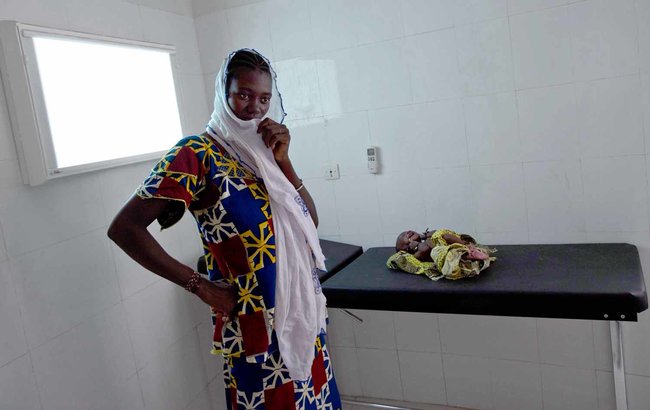In his July 11, 2014 Op-Ed piece in the New York Times, Nicholas Kristoff quotes The Lancet’s most recent nutritional survey as indicating that 804,000 children die annually from “suboptimal breast-feeding,” more than the WHO’s estimate of deaths from malaria. Kristoff recounts taking a dying infant and its “teenage” mother to a hospital in Mopti, Mali. After the doctor “repositioned [the mother’s] arm” and “helped the infant to latch on to her breast,” Kristoff reports, the “baby came alive.” The doctor, Amidou Traoré, states, “The mother doesn’t know how to breast-feed properly . . . We see lots of cases of child mortality like this.” Later, Kristoff asks Shawn Baker, a public health expert, where he would invest a billion dollars if he had it. Baker replies, “To me, the next big win in saving kids’ lives is breast-feeding promotion. It’s absolutely unacceptable that more than 800,00 kids are dying annually of suboptimal breast-feeding.”

Image credit: Ben Solomon New York Times
As Kristoff notes, “predatory marketing by formula manufacturers” may be partly to blame, but the research he quotes suggests more intimate trauma. Even a young unprepared girl can figure out how to put her baby to her breast without the tutelage of a doctor and the World Health Organization. Women in Mali and elsewhere fed their babies long before the intervention of modern medicine. Where are the mothers and midwives who would pass on their knowledge? Why does so young and unprepared a girl have this infant? Where is her village? Why is she all alone and dependent on the random kindness of a traveling Westerner? If this research and testimony is reliable, what physical and social traumas have caused this alienation from maternal practices and why aren’t these men focused on that violence, rather than reducing the problem to the absurd idea that a woman can’t figure out how to hold her baby without a man’s help?

